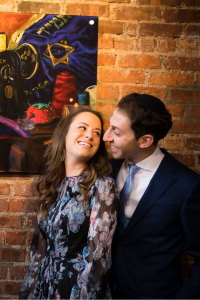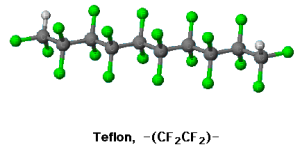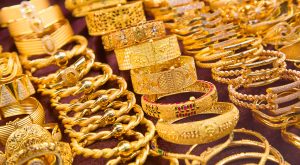Ki Sisa 2021: Aaron, Man of Teflon
by devadmin | March 4, 2021 9:43 pm
 Siman tov and mazel tov! The heylige Ois and eishes chayil are looking forward to walking their beautiful daughter Alexandra Lauren down the aisle to the chuppah where she will -this coming Sunday- be marrying Jonathan Herszfeld. Mazel tov to us, our children, to our machatunim, Eilene and Yeruchem Herszfeld and to both extended families.
Siman tov and mazel tov! The heylige Ois and eishes chayil are looking forward to walking their beautiful daughter Alexandra Lauren down the aisle to the chuppah where she will -this coming Sunday- be marrying Jonathan Herszfeld. Mazel tov to us, our children, to our machatunim, Eilene and Yeruchem Herszfeld and to both extended families.
A special mazel tov shout-out to grandparents Irv and Ellen Bader, and to Murray and Estelle Appelbaum; may they have continued good health and nachas. May Alex and Jon always be as happy as they will be on Sunday, and may they merit many decades of pure bliss.
Aaron, man of Teflon.
The word teflon is used to describe someone who manages to avoid criticism and keep a good reputation, even after they have done something wrong.

Parshas Ki Sisa contains the ugly chapter of the eygel caper (golden calf). It’s the sin that angered the RBSO who in turn suggested more than a divorce from the Yiddin; He expressed thoughts about killing them all, hitting the factory reset button, and starting mamish all over again. As an aside, of course you all know that this was not the first time the RBSO’s anger flared to this boiling point, and not the last. He had previously destroyed the world, the one of Noiach’s generation and will again express such thoughts as the Yiddin wander about in the desert. In our parsha, the RBSO allowed Moishe to talk him down, so to speak.
Ober, angry as He was, it was Moishe who descended the mountain and ordered the execution of the perpetrators while the RBSO stood by. All this is avada known to all of you. What’s on the heylige Ois’s mind this week, is the role of Aharoin the Koihen Gadol (High Priest) and how it was shayich (remotely possible) for him to have emerged from the calamity with clean hands, alive and well. Was Aharoin made of Teflon? It might be argued that for his role in the matter, he earned a promotion. And the lead question of the week, perhaps the only question in this shortened review is this: was Aharoin guilty, or at least complicit, in the matter of the golden calf? Were his hands dirty, and if yes, how did he get away with it? And before we prosecute and then defend him, this week’s review may or may not be a shtikel shorter as the heylige Ois is getting ready to marry off his daughter this coming Sunday and is busy trying to figure out who sits where, how to fit 9-10 people onto tables where only 8 are allowed, deciding who sits outside but inside a tent, and who sits indoors but outside the tent. And before we answer this week’s questions, let’s go back to seating and the tent. Are you confused? Me too! We live in crazy times: the velt is in gantzin mishuga! Kol z’man (as long as) one is sitting inside a tent, no matter that all flaps are closed mamish, and the heat is blasting, one feels safe. One feels secure and unafraid that COVID-19 might sneak in and infect him/her. It cannot: because the tent is mamish closed on all sides. Ober, if one sits -chas v’sholom- indoors, with many windows and doors open, to a point where one is mamish so uncomfortable from the cold that one cannot be comfortable, one is still worried sick that corona might be sneaking in and wreaking havoc.
 What’s pshat? How can a closed tent be safer than a room with open windows? The bottom line: corona fear has made rational people completely irrational. Avada those with preexisting conditions and (all) others must be diligent, ober someone please tell me how it’s safer to be sitting outdoors in a closed tent, than indoors with doors and windows mamish open? The bottom line: the observance of corona is akin to the observance of religion. If one does not observe corona mamish exactly as do you, that person is a no-good bum. Therefore, that person’s kids cannot ever marry yours and worse. That person will be talked about and bad-mouthed as if he robbed you out of your life savings, chapped your wife, and worse. The good news: earlier this week – as all know by now- the governor of Texas re-opened his state: businesses may open and masks are now only voluntary. He will be relying on the people of to act rationally. May others copy him soon! Omen.
What’s pshat? How can a closed tent be safer than a room with open windows? The bottom line: corona fear has made rational people completely irrational. Avada those with preexisting conditions and (all) others must be diligent, ober someone please tell me how it’s safer to be sitting outdoors in a closed tent, than indoors with doors and windows mamish open? The bottom line: the observance of corona is akin to the observance of religion. If one does not observe corona mamish exactly as do you, that person is a no-good bum. Therefore, that person’s kids cannot ever marry yours and worse. That person will be talked about and bad-mouthed as if he robbed you out of your life savings, chapped your wife, and worse. The good news: earlier this week – as all know by now- the governor of Texas re-opened his state: businesses may open and masks are now only voluntary. He will be relying on the people of to act rationally. May others copy him soon! Omen.
Shoin, where were we? We were discussing the one question of the week? How was it that Aharoin, the otherwise fine gentleman, older brother to Moishe, and his trusted assistant, the one person who accompanied him to visit Paroy to ask/demand that the Yiddin be freed, the one the RBSO told Moishe to bring “near,” have become ensnared in this ugly caper? How could he -seemingly almost alone and with his own hands- have built or formed the eygel? And, how did he get away scot-free -unblemished mamish- when others paid with their lives? Was he at all punished? Was he efsher rewarded? Did the RBSO give him a pass because He liked him? Because he was Moishe’s brother? Does the RBSO look for, and at times, elevate and also reward certain people despite their sins, no matter how grievous? Was there ever a sin more egregious and blatant than the golden calf? Were we not taught that the sin of the eygel is still on the mind of the RBSO thousands of years later and that every time the Yiddin get punished, the RBSO also has in mind to punish us for the sin of the eygel? We were! It’s the sin that keeps on giving. Yet, Aharoin, its mastermind and designer walked away no questions asked!? Did Moishe protect him? Nepotism efsher? What’s pshat here? Nu, most of you must be klerring azoy: that’s not one question; that’s many. And the emes is that they are all to be considered one long run-on question and let us repeat the big one: How was it that Aharoin the mastermind and builder of the eygel (and then some), was not instantly killed by the orders of Moishe? Did Moishe not specifically order and demand that brother act against brother if they were involved in the eygel caper? He did! Says the heylige Toirah (Shmois 32:27), azoy:
| 27. He said to them: “So said the Lord, the God of Israel: ‘Let every man place his sword upon his thigh and pass back and forth from one gate to the other in the camp, and let every man kill his brother, every man his friend, every man his kinsman.’ “ | כזוַיֹּ֣אמֶר לָהֶ֗ם כֹּֽה־אָמַ֤ר יְהֹוָה֙ אֱלֹהֵ֣י יִשְׂרָאֵ֔ל שִׂ֥ימוּ אִֽישׁ־חַרְבּ֖וֹ עַל־יְרֵכ֑וֹ עִבְר֨וּ וָשׁ֜וּבוּ מִשַּׁ֤עַר לָשַׁ֨עַר֙ בַּמַּֽחֲנֶ֔ה וְהִרְג֧וּ אִֽישׁ־אֶת־אָחִ֛יו וְאִ֥ישׁ אֶת־רֵעֵ֖הוּ וְאִ֥ישׁ אֶת־קְרֹבֽוֹ: |

Was Aharoin killed? Not! What’s pshat? Let us find out exactly what Aharoin did that was so giferlich. Says the heylige Toirah when describing one of the most defining and difficult moments in Jewish history, the sin of the golden calf, (Shmois 32:1), azoy: “When the people saw that Moishe was late in coming down from the mountain, the people gathered against Aharoin, and they said to him: “Come! Make us gods that will go before us, because this man Moishe, who brought us up from the land of Egypt we don’t know what has become of him.” Next: A mob formed from within the people, and they convinced Aharoin to help them create a new leader in place of Moishe, a new god in place of the RBSO. You hear this? The Yiddin, newly married to the RBSO but weeks, were ready for an affair of sorts. Who cheats mamish right after the wedding? Avada it’s understood, and protocol demands a honeymoon period, a no-cheat time period, albeit a small one, ober to cheat mamish so early in the marriage? Not nice and no wonder the RBSO was ready to dissolve and annul the marriage. What did Aharoin do? He collected their gold jewelry, and helped them melt it into a molten calf. Giving the people their idol, Aharoin stood by as they proclaimed “eileh eloikecha Yisroel” (these are your gods, Israel), and then, added (efsher absurdly), “who brought you out of Egypt.” What the hec? OMG!
When Moishe descended the mountain and saw the depth to which the people have sunk, he shattered the tablets on which the RBSO has directly carved the commandments. He immediately, and violently, eradicated the idol along with 3,000 members of the mob that created it. He made moves to restore justice and order in the camp. Moishe interrogated Aharoin, who shrugged off responsibility. Aharoin answered (Shmois 32:22-24), azoy: “you know the people, that they are disposed toward evil.” “They gave me the gold; I threw it into the fire and out came this calf.” Blame the people! Did Aharoin accept responsibility? Seemingly not! Instead, he chose to be a bystander to the mob. Instead of fulfilling his responsibilities and standing up in the face of chaos, he chose to maintain temporary order and his own leadership status by surrendering to the mob? Oy vey!
 And Moishe? He listened to Aharoin’s defense and efsher thought azoy: it’s ok my older brother; I got your back. Oh, and we forgot to mention the final sentence of this scene: “Aharoin built an altar and called out saying, ‘A festival for G‑d tomorrow.’” What went down here? The prosecution rests. The defense and some cross examination begin.
And Moishe? He listened to Aharoin’s defense and efsher thought azoy: it’s ok my older brother; I got your back. Oh, and we forgot to mention the final sentence of this scene: “Aharoin built an altar and called out saying, ‘A festival for G‑d tomorrow.’” What went down here? The prosecution rests. The defense and some cross examination begin.
Ober Raboyseyee, our sages of the heylige Gemora and others, Aharoin’s proverbial lawyers, jumped to his defense and tell us that’s not what happened; there was another side to the story. And isn’t there always? Aharoin was but stalling for time. His defense is clear-cut and simple. Fearing the out-of-control mob or efsher suffering a temporary loss of faith himself, Aharoin showed no resistance to the people’s request. He but came up with a brilliant plan – he should be lauded. In a stall strategy giving Moishe time to return from the mountain and to prove that he was alive and that the RBSO was still there for the Yiddin, he decided not to persuade them of the error of their ways. He concocted a plan of his own. Ober, is that an acceptable defense? He allowed the people to get involved in avoido zoro mamish (idol worship) because he was afraid? And the kasha is azoy: why do our sages -time and again- resist the notion that a few of our Biblical heroes, to include Aharoin, were but human beings who have human flaws? And that Aharoin made a mistake and then repented? Aren’t we taught to accept responsibility and then repent? Isn’t that what we do on Yom Kippur? Moreover, if taka Aharoin went through a weak moment, possibly even in his own faith, then: a) Moishe also seems to have turned a blind eye, in one of the greatest shows of nepotism attributed to a Biblical hero; b) not only did Aharoin lack in strong leadership, but he was actually dishonest, with no sense of responsibility. Oy vey!
Let’s chazir: Moishe descended, shattered the tablets, ground them up the eygel, and then addressed Aharoin. Moishe asked him (Shmois 32:21), “What did this people do to you that you brought a grave sin upon them?” Ober Moishe skipped over the most critical question: How did you make an idol, when you just heard at Matan Toirah that idols are forbidden? Did Moishe give his brother a pass with that question? A way out? Instead of excoriating his older brother for creating an idol, he instead asks, “what did they do to you that you did this to them?”—implying that Aharoin was forced into this. Why is he so sure that Aharoin didn’t make the calf out of a lack of faith? Aharoin chapped the opening and responded azoy: “Let not my lord be angry! You know the people, that they are disposed toward evil.” Love it! Blame the others! Did Aharoin take responsibility for his actions? Hello! Who asked them for the gold and silver? Who threw it into the fire? In the end, Moishe punished the people involved, and 3,000 were killed by the sword. Some die after being forced to drink the water of the ground-up eygel (32:20), and many more (number not revealed) die in a plague which the RBSO sent. Was Aharoin mamish innocent? The people are smitten by a plague because they had partied hearty around a calf fashioned by Aharoin when he wrapped the collected gold into a schemata of sorts and out came the golden calf, yet the mastermind of this outrage is rewarded with priesthood for himself and all his children? What’s the lesson here? Does the RBSO reward those who led others astray? Say it’s not so please.
Ober Raboyseyee, let’s not be angry or badmouth, or even question our sages; it was their job to look at the events as written in the heylige Toirah, analyze them, pontificate over the text, and only then come up with defensible positions that made good sense to them and to us. And so they did. They figured it all out. Ershtens (firstly), of course Aharoin could not be guilty of avoido zoro (idol worship) for had he, the RBSO would have taken him out. But didn’t he create the golden calf. And wasn’t it an idol? What’s taka pshat?
A number of commentaries suggest that Aharoin made the eygel because he was afraid the mob might kill him as they did Chur. Chur? Who was he and who killed him? Is his death recorded in the heylige Toirah? Not! Ober not to worry because the heylige medrish (Vayikro Rabba 10:3), when reading the text carefully, figured out that since Chur went missing from the text, he was killed while resisting the mob. What’s pshat? Back in Perek 24, posik 14, we read that Moishe placed Aharoin and Chur, the son of Miriam and Kolave (meaning Moishe’s nephew) in charge of the camp when he ascended the mountain. With Moishe running late, the people thought him dead and demanded an idol. Chur arose and rebuked them, whereupon they rose against him and killed him. No more Chur. They then came to Aharoin, and said to him: “We will do to you what we have done to this man.” Realizing the threat ho his life, Aharoin caved and shoin, an eygel was born.
Ober, didn’t we learn that we are supposed to let ourselves be killed rather than commit/create idolatry? We did; and taka what’s pshat with Aharoin being afraid to die as a martyr? And while it’s emes that all Toirah prohibitions are pushed aside when threatened with death, it’s also emes the rule does not apply with three notable exceptions: Idolatry, adultery, and murder. It does epes appear that Aharoin was involved with one of the big three. Ober, could it be argued that there were unique circumstances that would have allowed Aharoin to fashion the eygel? Could we argue that the facilitation of idolatry, while bad, is not Idolatry mamish? Of course, Aharoin himself did not serve the idol; he was merely its creator and the facilitator of the idol worship. While taka not so nice and zicher a transgression of lifne iver lo siten michshoil, can we argue that it’s not idolatry itself? And guess what? Says the Ba’al Hamaor and Milchamos to Sanhedrin 74b, and R’ Elchonon Wasserman Kovetz Ho’aros #48) that this would be the equivalent of handing a murderer the weapon to commit murder. The person handing over the gun does not commit a cardinal sin and by extension, creating an idol is not idolatry. And this prohibition is not included in the three cardinal sins. On the other hand, says the Ramban (Shmois: 32:21), that this act of creating the golden calf is included in the above category, and therefore Aharoin should have allowed himself to be killed. In Hebrew, he says azoy:
ואיננו נכון בעיני, כי החטא הזה מן החטאים שיהרג ולא יעבור
And taka says Rashi that Moishe’s question to Aharoin in posik 21 (“What did this people do to you that you brought [such] a grave sin upon them?”) was meant to give him a shtikel escape (from sin) rope. Moishe was asking Aharoin if he was physically abused or tortured before acquiescing to make the eygel. Moreover, says the Shita Mekubetzes (Kesuves 33), so gishmak, azoy: the threat of torture is considered worse than threat of death, and under such circumstances it would be permitted for Aharoin to have made the eygel. And says the heylige Gemora (Sanhedrin 7a), that Aharoin’s intention was noble. He saw that the Yiddin had stoned Chur to death and realized if he opposed them he would meet the same end. And by killing him, the Yiddin would commit an unparalleled crime, of killing a Kohein-Venovi (a koihen and prophet). The RBSO does not take kindly to that; Aharoin, by agreeing to fashion the eygel instead of sacrificing his own life, thereby saved the Yiddin from certain doom. Aharoin realized it would be better for them to serve idols then commit such a grave sin. Moreover, says Rashi, that he was hoping to delay them until Moishe came and hoped that the women would put up a fight not to give up their jewelry so quick. The women? Let us recall that Aharoin, in his wisdom, and seeking to stall the crowd, came up with this most brilliant strategy: go home and ask your wives and your women to disgorge themselves of their jewelry. Come back and I’ll make you a god. Women disgorging their jewelry? Never! Avada all married men know that women do not -ever- give up their jewelry. Farkert: it’s also well bavust (known) the lengths to which women will go to get or even make, if you chap, jewelry. As a married man himself, Aharoin knew the score; women were not giving up their jewelry. He knew they weren’t even giving up their jewels unless they got jewelry. And for those reasons alone, Aharoin was innocent with pure intentions.
Says the Ralbag that Aharoin was actually trying to prevent the idolatry, and did everything in his power to delay it as much as possible, hoping that Moishe would return in the interim and sort things out. Ralbag argues that first Aharoin told them to get the jewelry from their wives and children, knowing that this would take a while as the women and children would be very hesitant to give up their jewelry. When Moishe still hadn’t returned, Aharoin dragged out the process further by “fashion[ing] it with a graving tool.” When Aharoin then saw that Moishe had still not returned and the people had begun referring to the calf as “gods”, he delayed further by building an altar. When this was still not enough, he delayed again by saying “Tomorrow shall be a feast to the LORD.” But the next morning the people arose and brought offerings and there was nothing more that Aharoin could do. Moreover, Aharoin could not have objected outright to the idea because then the people would have simply killed him and there would be nothing left to temper their idolatry. By buying time and staying alive, Aharoin had some ability to minimize the great sin about to unfold. The bottom line: Aharoin was more innocent than guilty. Shoin!
On the other hand, Aharoin might have been among those who did tshuva (repented). Says the heylige Toirah (Shmois 32:26), azoy, “Moishe stood in the gate of the camp and said, ‘Who is on the LORD’s side? Come to me.’ And all the sons of Levi gathered around him.” As a son of Levi, Aharoin was one of those who came over, repented, and the RBSO forgave. Moreover, in posik 30 we read azoy: “You have sinned a great sin. And now I will go up to the LORD; perhaps I can make atonement for your sin.” Did Moishe come down with a pardon for Aharoin? The list of commentators proffering thoughts on Aharoin’s innocence or guilt can fill another ten pages, ober as you can see, there are two sides to every story and what appeared to the naked untrained and uninformed eye as idol worship, or conspiracy to commit idol worship, may not have been quite so. Let’s get to the bottom lines.
Was Aharoin punished for whatever role he may have played? We can argue that indeed he was. Though he was not sentenced to death nor punished at that exact time, Aharoin would later die in the midbar and never enter the Promised Land. Aharoin also endured the loss of two of his adult sons in a judgment from the RBSO. After Aharoin fashioned the golden calf, his life seemingly included many difficulties; can we not argue that these we punishments for earlier sins? We can.
A second response offered by chaver Elliot Ostro who called earlier in the week to ask if the Ois would be writing while planning the wedding, goes azoy: the RBSO did not punish Aharoin for making the golden calf because Aharoin had already been chosen as the koihen godol. Despite his sin, he was chosen to and needed to lead and perform the avoido (service) in the Mishkan. His role was seemingly vital. The heylige Toirah (Shmois 28) describes in great and colorful detail his consecration, and the important role he and his sons would play in the worship rituals. The position of the high priest was promised seemingly- before Aharoin’s molding of the golden calf in our parsha.
Ober, the most logical answer goes azoy: this was not the first time the RBSO used an unlikely person to serve in an important role. He used Loit to bed his own daughters so that we could eventually get to Rus and later Dovid Hamelech. The RBSO certainly forgave Dovid for his exploits which also included one of the three cardinal sins. Let’s not forget that He also favored Yehudah who gave birth to twins from a roadside encounter with his daughter-in-law dressed as a hooker. The list goes on. Aharoin, the man who led the Yiddin astray to worship a golden calf, was the very man the RBSO chose to lead Israel in worship of the Lord. This pattern is often observed in Scripture. Many times, as we have mentioned in the past, the RBSO uses the least likely to accomplish tasks for His glory. And that Raboyseyee is the final bottom line of the week: the RBSO rarely looks at the great people of their generations. Instead, looking through history, we find many examples when regular joe’s, or yankel’s, many even controversial or bad people, were given important and leading roles. And the good news? It could be any of you reading this review.
A gittin Shabbis-
The Heylige Oisvorfer Ruv
Yitz Grossman
Source URL: https://oisvorfer.com/ki-sisa-2021-aaron-man-of-teflon/